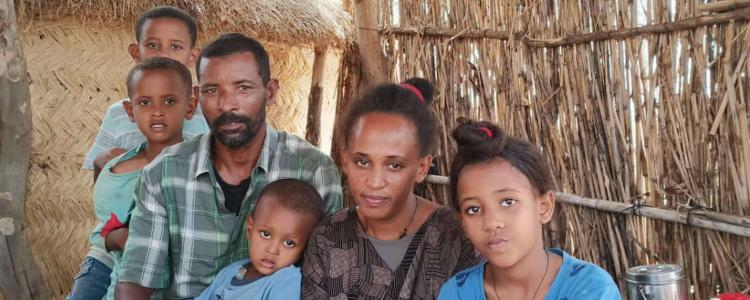By Lisa Vives, Global Information Network
NEW YORK | 25 February 2024 (IDN) — It’s been called ‘Sudan’s Interminable War’, relegated to invisibility by wars in Gaza and Ukraine.
But for the selfless aid workers and the remaining Sudanese, it’s been an endless nightmare with no tangible end in sight to the widespread suffering endured by the country and its people.
Once known as Nubia and Ta Nehesi or Ta Seti by ancient Egyptians, Sudan became an independent sovereign state, the Republic of Sudan, in 1956—ending its nearly 136-year union with Egypt and its 56-year occupation by the British.
The British colonial policy in Sudan developed unsustainable power structures between North and South Sudan, and between ethnic groups in the South. The result of this mismanagement, underdevelopment, and neglect was Northern dominance and hegemony within the independent Sudanese government.
The economic, educational, and political benefits supplied to the North, compared to the neglect and expropriation inflicted upon the South, led to a vastly uneven balance of power, which was the direct cause of the Sudanese Civil War, fought between 1956 and 2005.
When South Sudan gained complete independence in 2011, it entered statehood as one of the world’s poorest, least developed nations—the century of neglect under the British and of violence and oppression under the North Sudanese left the fledgling country with an insecure future.
Omar al-Bashir, a Sudanese military officer, led a revolt that overthrew Sudan’s elected government in 1989. He served as president of Sudan for nearly 30 years, from 1993 until 2019, when the Sudanese Armed Forces overthrew him after months of popular protests by, among others, 17 different trade unions and an alliance of doctors, journalists and lawyers demanding his departure.
Protests
Protesters adopted slogans of regime change that echoed the Arab Spring of 2011. They gathered outside the military headquarters in the capital and refused to move.
The proportion of women among the protesters has been put as high as 70%, and they came from all ages and backgrounds. They say they were also demonstrating against Sudan’s sexist attitudes in a conservative Muslim society where Sharia law is practiced.
However, the protestors failed to reap the dividends of that revolution because the international community did not support the transitional government sufficiently, according to BBC radio journalist Zeinab Badawi.
“It is extraordinary how a country as large as Sudan—the third biggest in Africa—hasn’t received more attention,” she observed.
Humanitarian crisis
“In the short term, there is a dire humanitarian crisis, and people desperately need food, clean water, and medicine. There’s been a lack of security – we need some kind of immediate ceasefire to help the people get their needs attended to.”
She continued: “How do we stop the two warring generals from fighting on the ground? We need a more concerted, united diplomatic effort internationally. At the moment, we are seeing very splintered efforts. We’re seeing one track through Jeddah involving the U.S. and Saudi Arabia. We see other tracks through the African Union and IGAAD. Frankly, it’s just led to this patchwork, creating a space for the generals to continue their battle. This is not conducive to peace at all.”
“Amidst all that wreckage that was Sudan, the spirit of the Sudanese people has not been extinguished,” she declared.
“Large parts of Africa are predominantly young. The average age is 18. They have never lost their desire for a better world. We should encourage their resilience and help them however we can.” [IDN-InDepthNews]
Photo: Sudanese family in Khartoum. Credit: MSF
IDN is the flagship agency of the Non-profit International Press Syndicate.


